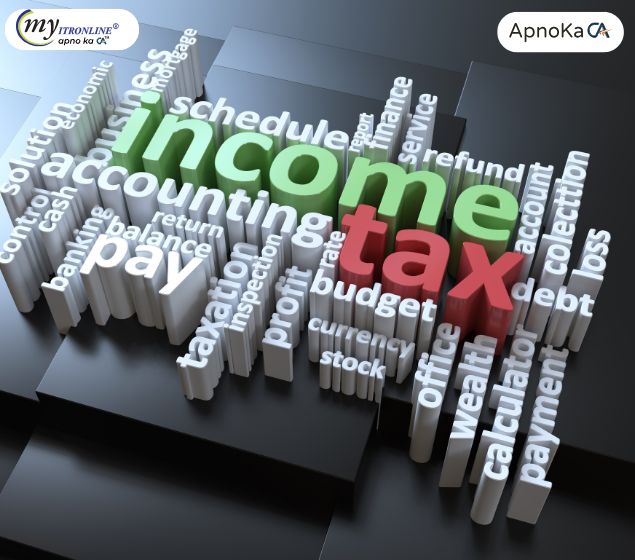# investment
12 posts in `investment` tag

Shares, MF & Property Capital Gains: Reporting Guide for ITR AY 2025-26 (New Rules)
This blog post details how to report capital gains from shares, mutual funds, and property in the Income Tax Return (ITR) for Assessment Year 2025-26 (Financial Year 2024-25). It explains the classification of gains (STCG/LTCG), calculation methods considering grandfathering, the significant impact of the Finance (No.2) Act 2024 changes effective July 23, 2024 (including curtailed indexation and revised tax rates), set-off rules, and specific ITR schedules (like CG and 112A). It also covers capital gains exemptions and emphasizes reconciliation with AIS/TIS.

Your FY 2024-25 Investments & Their Impact on AY 2025-26 Tax Return
Your FY 2024-25 investments directly impact your AY 2025-26 tax return. This guide covers tax-saving deductions (80C, 80D), taxable income (interest, dividends), capital gains reporting, and regime selection (old vs new). Ensure accurate filing with proper documentation.

Exciting Update for NSS Investors! The Section 194EE Exemption Renders 80CCA Withdrawals Free from Tax.
Recent updates clarify that NSS withdrawals associated with Section 80CCA deductions are exempt from TDS under Section 194EE. Investors can receive the complete principal amount without tax, with only the interest being subject to taxation.
.jpg)
Notification No. 19/2025: Tax Implications of PFC’s Ten Year Zero Coupon Bond
Notification No. 19/2025, issued by the Central Board of Direct Taxes (CBDT), recognizes Power Finance Corporation Ltd.’s Ten Year Zero Coupon Bond under Section 2(48) of the Income Tax Act. This notification provides clarity on the bond’s tax implications, making it a more transparent and attractive investment option. Investors should consider tax planning, financial goals, and risk assessment before investing in such instruments.
.jpg)
Clause 123: New Rules for Tax Deductions in 2025
The Income Tax Bill 2025 introduces Clause 123, replacing Section 80C, to streamline tax-saving deductions. This blog explores the implications of this change, how it affects taxpayers, and what it means for future tax planning. Learn about the unchanged deduction limits, eligible investments, and the simplified tax structure under Clause 123.
.jpg)
Old vs New Tax Regime: A Detailed Comparison to Save More
The Indian government provides two tax regimes – the Old Regime and the New Regime – each with its own benefits and drawbacks. The Old Regime offers multiple deductions and exemptions, while the New Regime provides lower tax rates with minimal exemptions. This blog explores the key differences, tax calculations, and real-life illustrations to help taxpayers make an informed choice. Find out which tax regime suits your financial situation best!
.jpg)
Big Change in Taxation: 87A Rebate Restricted to Regular Income Only
One significant change brought about by the recent alteration to Section 87A of the Income Tax Act is the removal of the rebate on special rate incomes, such as short-term and long-term capital gains. The Bombay High Court formerly permitted the refund even for earnings with special rates, but this has now been reversed. Even if their total income is less than ₹7 lakh, taxpayers who make capital gains will now be required to pay tax at certain rates. The changes, their effects, and tax preparation techniques are examined in this blog.
.jpg)
Government Clarifies Position on Capital Gains Tax Reforms
By declaring that no structural modifications to the capital gains tax system are under consideration, the government has reassured private investors and High Net Worth Individuals (HNIs). This ruling, which was announced on January 22, 2025, gives investors much-needed confidence and guarantees stability in India's tax system. The blog discusses the basics of capital gains tax, making a distinction between short-term capital gains (STCG) and long-term capital gains (LTCG), and stressing the significance of the government's resolve to preserve the current framework. Stability in tax policy, the maintenance of investment incentives, and increased market trust are important lessons learned that guarantee investors may smoothly organize their finances.
.jpg)
Section 10(23FE Simplified: CBDT’s Notification 127/2024 Explained
By issuing Notification No. 127/2024, the Central Board of Direct Taxes (CBDT) has amended Section 10(23FE) of the Income-tax Act. The updated rules simplify compliance and increase the range of assets available to pension funds (PFs) and sovereign wealth funds (SWFs). In line with India's economic objectives, these adjustments are meant to draw in long-term investments in the social development and infrastructure sectors.

Leveraging Sections 54 and 54F for Tax Exemptions in Property Transactions
This blog explores Sections 54 and 54F of the Indian Income Tax Act and explains how they exempt individuals and HUFs from paying taxes on capital gains when they reinvest them in residential real estate. To ensure clarity for taxpayers, the essay also discusses frequent disagreements, court rulings, and helpful advice for claiming exemptions.
.png)
Navigating the Complex World of High-Net-Worth Individuals in India
This blog provides an overview of High-Net-Worth Individuals (HNWIs) in India, defined as individuals with a net worth exceeding ₹5 crore. It discusses their investment preferences, including real estate, stocks, and alternative assets, and highlights their financial goals like wealth preservation, tax efficiency, and legacy planning. The blog also addresses challenges such as tax planning, risk management, and liquidity issues. Additionally, it covers key tax considerations, estate planning strategies, and philanthropic efforts, offering insights into effective wealth management for HNWIs.
Getting Around Section 112: An In-Depth Look at India's Long-Term Capital Gains Tax
This blog post provides a complete guide on Section 112 of the Income Tax Act, 1961, which governs the taxation of long-term capital gains in India. It provides an explanation of Section 112's main characteristics, such as tax rates, indexation benefits, exemptions, and unique rules for non-residents. The site also explains how Section 112 applies to various kinds of capital assets and walks readers through the process of calculating long-term capital gains. It also draws attention to significant legal rulings and factors that affect taxpayers. Through a thorough comprehension of the intricacies of Section 112, individuals can proficiently handle their tax obligations concerning long-term capital gains.
